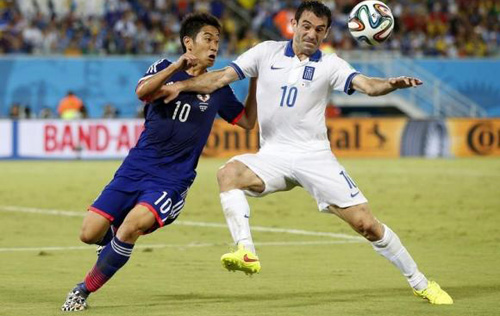 The Long Room was eerily silent. As Mohammad Amir set out for his innings the members, sprinkled around on their high chairs neither applauded nor jeered as the 18-year-old, the precocious hero of 24 hours previously, made his way through the hallowed portals to the crease.
The Long Room was eerily silent. As Mohammad Amir set out for his innings the members, sprinkled around on their high chairs neither applauded nor jeered as the 18-year-old, the precocious hero of 24 hours previously, made his way through the hallowed portals to the crease.
Amir was escorted by a green-blazered MCC official, clutching his walkie-talkie earnestly. Reg Dickason, the England and Wales Cricket Board’s security chief, looked on grimly. Nothing would be left to chance today and there was no way that Amir was going to lose his way out to the middle in the manner of David Steele on his 1975 Lord’s Test debut, when he mistakenly descended an extra flight of stairs to end up in the toilets.
Outside there was a solitary “boo” from the Edrich Stand as Amir, suddenly looking the frailest of teenagers, walked out to the middle. His first ball from James Anderson elicited a cry of “no-ball” from the Grand Stand. Otherwise a bewildered crowd looked on quietly, pondering whether their purchase of an expensive Test match ticket was value for money.
Upon Amir’s return to the pavilion a few minutes later the silence remained. It was a stony silence rather than the deafening one endured by Ian Botham from a packed Long Room after his 1981 Ashes pair. Instead there was an air of bemusement. Somehow an inevitable England win was nothing to cheer about, though there was polite applause when Andrew Strauss and his victorious team returned to the pavilion. Most of the Pakistan side, ashen-faced and unsmiling, had descended from their dressing room into the Long Room to shake hands with their opponents, but Salman Butt, the captain, and Amir were nowhere to be seen.
All morning Donald Bradman and Douglas Jardine, their portraits mischievously placed alongside one another on the Long Room wall, looked down on the coming and goings of the players. And at last they seemed to be in agreement. “Call this a crisis? We know a proper crisis when we see one.” Nearby there was WG, who was never averse to making a fast buck. Was he secretly marvelling at the simplicity of the scam alleged by the News of the World?
But the grim faces remained down below. In stepped Hugh Morris, the ECB’s director of cricket. On Saturday I had observed to one of Morris’s old friends that he had been conspicuously absent this summer. “There’s been no crises for him to sort out,” was my explanation. Morris could not dally in the Long Room. There were meetings to attend. “I was planning to spend today in the garden,” he said.
Most of the members must have known all about the crisis. There was a record number of copies of the News of the World in the Long Room. At least three were visible. There were several more Sunday Times and a surprising dearth of Observers.
Once the handshakes between the players were completed most of the members were ushered out of the Long Room, which now became a “sterile area” for the presentations. So they had to peer through the windows at the sham of a closing ceremony to the series. The ECB chairman, Giles Clarke, disdainfully refrained from shaking hands with Amir when presenting him with the award for Pakistan’s man of the series. Then, still in a daze, the members all pottered off to contemplate a surreal day at Lord’s.
At 10am England, in their slick dark blue tracksuits, had all been out there, training like dervishes. There were slip catches, long catches for the fielders; the bowlers stretched every imaginable muscle as if preparing for any other day of Test cricket and an arduous one at that. But the green tracksuits were nowhere to be seen. A few of the Pakistan squad appeared on the balcony of their dressing room. None of them ventured on to the playing area.
Remembering 2006 at The Oval there may have been a tingle of relief for the match officials when the two batsmen, Azhar Ali and Umar Akmal, appeared from the pavilion for the start with their best attempts at a swagger.
Akmal would record his highest score of the series, a seemingly carefree 79 not out, even though he is one of the seven named in the News of the World. He flogged a couple of sixes (to more dutiful applause from the high chairs, since they always clap maximums). But no one stayed with Akmal. No one was greatly bothered about that.
There was a wicket for Anderson, a run-out that seemed to cause the batting side the minimum of exasperation and another five-wicket haul for Graeme Swann. But even the arch-jester could barely muster a smile at his success.
Afterwards Strauss was suitably downbeat. On another day a victory by an innings and 225 runs after being 47 for five on the first morning would have been cause for the champagne to flow without restraint. But “the gloss had been taken off this victory”, Strauss said. “We will celebrate as much as we can tonight.” But as in 2006 it seemed that even the victorious England side would be drinking to forget rather than to relive their series victory – Guardian











